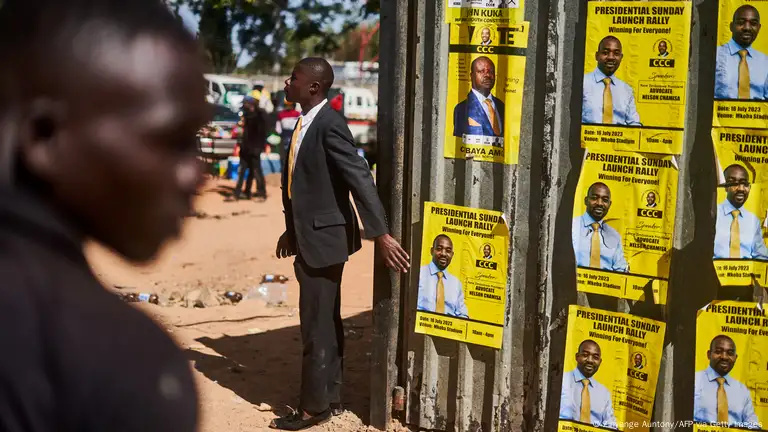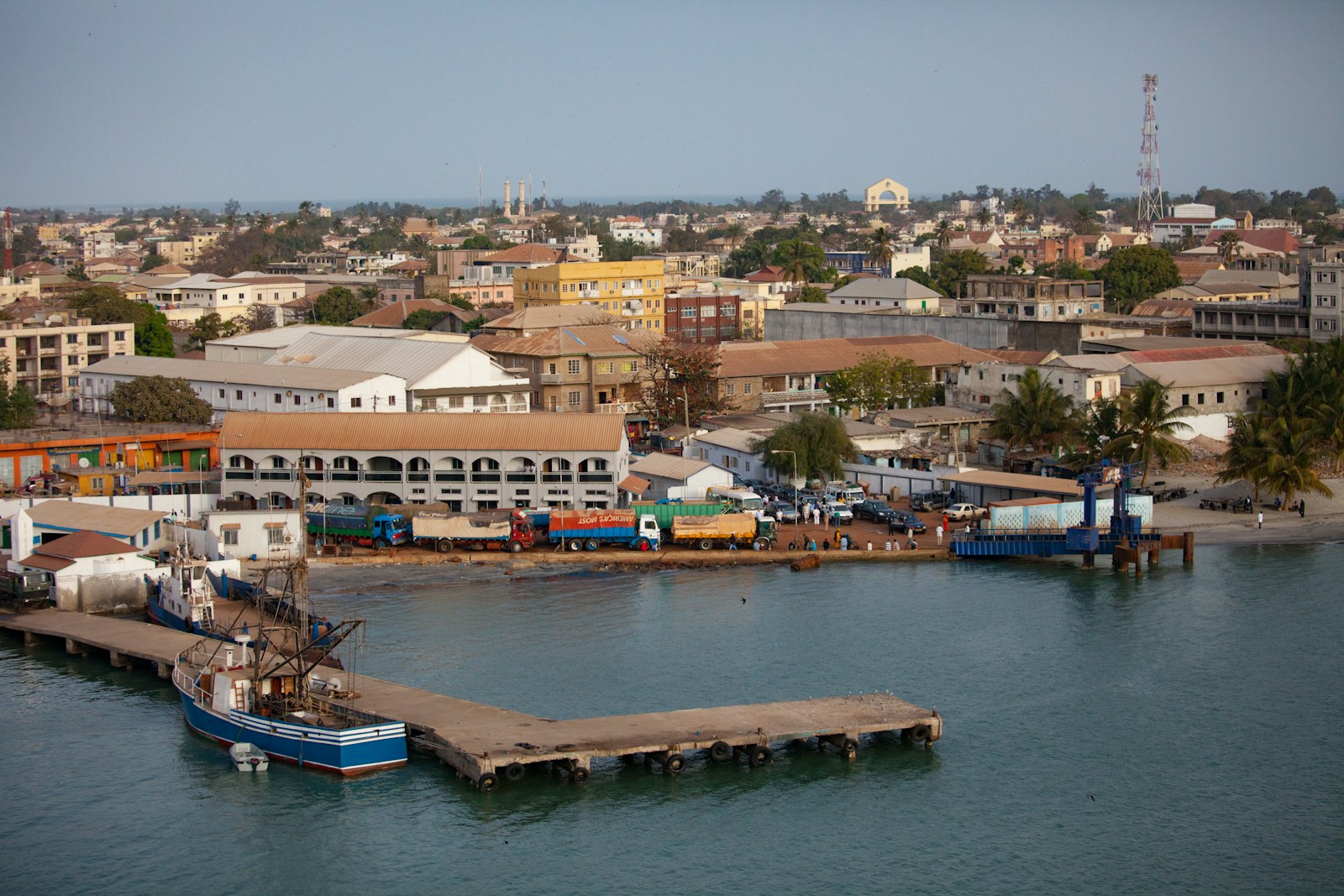Zimbabwe’s 2023 Election: High Stakes, Democratic Challenges & Economic Impacts
Zimbabwe’s 2023 Election: High Stakes, Democratic Challenges & Economic Impacts
Table of Contents
- Election Overview & Voter Turnout
- Results & Key Contenders
- Electoral Integrity & Observer Assessments
- Political Violence & Voter Coercion
- Economic Crisis & Public Sentiment
- Candidates’ Platforms & Party Dynamics
- Regional & International Implications
- Democratic Backslide & Governance Risks
- Policy Recommendations & Next Steps
- Looking Ahead
- Further Reading & Resources

📅 Election Overview & Voter Turnout
Zimbabwe held harmonised general elections on August 23–24, 2023, electing the president, as well as parliamentary and local council representatives. The voter roll included 6,623,511 registered voters, with turnout estimated at 68.86% :contentReference[oaicite:1]{index=1}. Due to ballot paper shortages in urban and opposition strongholds, voting was extended a day—raising concerns about administrative neutrality :contentReference[oaicite:2]{index=2}.
📊 Results & Key Contenders
Incumbent President Emmerson Mnangagwa (ZANU–PF) secured re-election with 2,350,711 votes (56.18%). Main challenger Nelson Chamisa (CCC) received 1,967,343 votes (41.46%) :contentReference[oaicite:3]{index=3}. Eleven candidates were on the ballot, but the contest focused on the two leading figures.
🗳️ Electoral Integrity & Observer Assessments
The Carter Center concluded in its February 2024 final report that the election “did not meet Zimbabwe’s regional and international commitments,” citing delays, restricted roll access, ballot distribution issues, and widespread assisted voting :contentReference[oaicite:4]{index=4}. Similar concerns were echoed by SADC, the EU, African Union, and Commonwealth observer missions, highlighting state media bias, civic restrictions, and uneven campaign conditions :contentReference[oaicite:5]{index=5}.
⚔️ Political Violence & Voter Coercion
Although voting on the 23rd–24th was relatively calm, intimidation, arrests, abductions, and beatings of opposition activists and observers continued. In Harare, 41 poll monitors were arrested, their equipment seized—a move labelled subversive by police :contentReference[oaicite:6]{index=6}. This post-election suppression further undermined electoral confidence.
💸 Economic Crisis & Public Sentiment
The voting took place amid economic collapse: hyperinflation over 175%, rampant currency depreciation, and roughly half the population living in extreme poverty :contentReference[oaicite:7]{index=7}. Public sentiment was one of frustration and voter fatigue following unmet reform pledges since Mugabe’s 2017 removal.
🤝 Candidates’ Platforms & Party Dynamics
Mnangagwa campaigned on continuity, sovereignty, hardline anti-sanctions, and deepening ties with China. He emphasized stability and controlling inflation through foreign investment and infrastructure :contentReference[oaicite:8]{index=8}.
Chamisa promoted democratic reform, transparency, job creation, ending corruption, and aimed to mobilize youth and marginalized communities :contentReference[oaicite:9]{index=9}.
Meanwhile, ruling party ZANU–PF remained internally divided, with factions positioning themselves for post-Mnangagwa leadership—raising future succession tensions ahead of 2028 :contentReference[oaicite:10]{index=10}.
🌍 Regional & International Implications
SADC and AU offered restrained criticism, acknowledging irregularities but taking no enforcement action. Zimbabwe’s re-entry into the Commonwealth was stalled due to lingering democratic concerns :contentReference[oaicite:11]{index=11}. Meanwhile, Western partners weigh conditional engagement tied to governance reform. Mnangagwa leaned further toward China for economic and political support :contentReference[oaicite:12]{index=12}.
🏛️ Democratic Backslide & Governance Risks
Observers—including Brookings and the Bertelsmann Transformation Index—describe Zimbabwe as increasingly authoritarian, with democratic institutions subjugated to centralized and security-driven control :contentReference[oaicite:13]{index=13}. Restrictions on media, NGO oversight, and legal reforms constrain civic freedoms.
🧭 Policy Recommendations & Next Steps
- Electoral reform: Empower the ZEC, publish full rolls, ensure ballot availability, and mandate impartial media coverage.
- Rule of law: Investigate election-related violence, protect observers, and ensure accountability.
- Regional leverage: SADC, AU, EU, and Commonwealth should attach financial and diplomatic incentives to visible electoral reforms.
- Economic recovery: Stabilize the macroeconomy, battle corruption, and prioritize job creation.
- Balanced diplomacy: Diversify foreign alignment—engage with China for infrastructure, but anchor Western aid to democratic progress.
🔮 Looking Ahead
Mnangagwa’s victory reinforces ZANU–PF dominance, but democratic integrity and economic satisfaction remain fragile. Failure to deliver tangible progress before 2028 could spark unrest, international withdrawal, or deeper authoritarian consolidation.
📚 Further Reading & Resources
- Carter Center Final Report (Feb 2024)
- Carter Center Preliminary Statement (Aug 2023)
- EU Observer Mission Final Report
- AP News: Observer Concerns & Arrests
Conclusion: The 2023 election marked a critical moment: ZANU–PF remains in power, but rampant economic hardship and compromised democratic frameworks challenge Zimbabwe’s future on both domestic and international fronts.
Zimbabwe’s 2023 Election: High Stakes, Democratic Challenges & Economic Impacts
Zimbabwe’s 2023 Election: High Stakes, Democratic Challenges & Economic Impacts
Table of Contents
- Election Overview & Voter Turnout
- Results & Key Contenders
- Electoral Integrity & Observer Assessments
- Political Violence & Voter Coercion
- Economic Crisis & Public Sentiment
- Candidates’ Platforms & Party Dynamics
- Regional & International Implications
- Democratic Backslide & Governance Risks
- Policy Recommendations & Next Steps
- Looking Ahead
- Further Reading & Resources

Zimbabwe’s 2023 Election: High Stakes, Democratic Challenges & Economic Impacts
Zimbabwe’s 2023 Election: High Stakes, Democratic Challenges & Economic Impacts
Table of Contents
- Election Overview & Voter Turnout
- Results & Key Contenders
- Electoral Integrity & Observer Assessments
- Political Violence & Voter Coercion
- Economic Crisis & Public Sentiment
- Candidates’ Platforms & Party Dynamics
- Regional & International Implications
- Democratic Backslide & Governance Risks
- Policy Recommendations & Next Steps
- Looking Ahead
- Further Reading & Resources

📅 Election Overview & Voter Turnout
Zimbabwe held general elections on August 23–24, 2023, electing the President, Parliament, and local councils. Voter turnout was recorded at 68.86% with 6.6 million registered voters. For more on Zimbabwe’s political history, visit our Zimbabwe political timeline.
📊 Results & Key Contenders
President Emmerson Mnangagwa (ZANU–PF) won re-election with 56.18% of the vote, while Nelson Chamisa (CCC) trailed with 41.46%. You can explore more about each party’s previous performance in our 2023 election results breakdown.
🗳️ Electoral Integrity & Observer Assessments
The Carter Center and SADC observers reported that the election failed to meet international standards. For detailed insights, read our observer report summaries.
⚔️ Political Violence & Voter Coercion
Opposition monitors faced arrests, including the detention of 41 local observers in Harare. Find more in our political violence report on Zimbabwe.
💸 Economic Crisis & Public Sentiment
Zimbabwe continues to face hyperinflation, with over 50% of the population in poverty. For a full analysis, visit Zimbabwe’s inflation and economic conditions.
🤝 Candidates’ Platforms & Party Dynamics
Mnangagwa emphasized stability and foreign investment, while Chamisa focused on anti-corruption and reform. Learn more in our guide to <a href=”/politics/zimbabwe-candidate-platforms-20
Zimbabwe’s 2023 Election: High Stakes, Democratic Challenges & Economic Impacts
Zimbabwe’s 2023 Election: High Stakes, Democratic Challenges & Economic Impacts
Table of Contents
- Election Overview & Voter Turnout
- Results & Key Contenders
- Electoral Integrity & Observer Assessments
- Political Violence & Voter Coercion
- Economic Crisis & Public Sentiment
- Candidates’ Platforms & Party Dynamics
- Regional & International Implications
- Democratic Backslide & Governance Risks
- Policy Recommendations & Next Steps
- Looking Ahead
- Further Reading & Resources

📅 Election Overview & Voter Turnout
Zimbabwe held general elections on August 23–24, 2023, electing the President, Parliament, and local councils. Voter turnout was recorded at 68.86% with 6.6 million registered voters. For more on Zimbabwe’s political history, visit our Zimbabwe political timeline.
📊 Results & Key Contenders
President Emmerson Mnangagwa (ZANU–PF) won re-election with 56.18% of the vote, while Nelson Chamisa (CCC) trailed with 41.46%. You can explore more about each party’s previous performance in our 2023 election results breakdown.
🗳️ Electoral Integrity & Observer Assessments
The Carter Center and SADC observers reported that the election failed to meet international standards. For detailed insights, read our observer report summaries.
⚔️ Political Violence & Voter Coercion
Opposition monitors faced arrests, including the detention of 41 local observers in Harare. Find more in our political violence report on Zimbabwe.
💸 Economic Crisis & Public Sentiment
Zimbabwe continues to face hyperinflation, with over 50% of the population in poverty. For a full analysis, visit Zimbabwe’s inflation and economic conditions.
🤝 Candidates’ Platforms & Party Dynamics
Mnangagwa emphasized stability and foreign investment, while Chamisa focused on anti-corruption and reform. Learn more in our guide to <a href=”/politics/zimbabwe-candidate-platforms-20
Zimbabwe’s 2023 Election: Critical Challenges, Power Struggles & Economic Consequences
Zimbabwe’s 2023 Election: Critical Challenges, Power Struggles & Economic Consequences
Table of Contents
- Election Overview & Voter Turnout
- Results & Key Contenders
- Electoral Integrity & Observer Assessments
- Political Violence & Voter Coercion
- Economic Crisis & Public Sentiment
- Candidates’ Platforms & Party Dynamics
- Regional & International Implications
- Democratic Backslide & Governance Risks
- Policy Recommendations & Next Steps
- Looking Ahead
- Further Reading & Resources

📚 Further Reading & Resources
Conclusion: The 2023 election reinforced ZANU–PF’s control but left the future of democracy, economic recovery, and regional relations uncertain. The coming years will test Zimbabwe’s capacity for reform and national unity.




